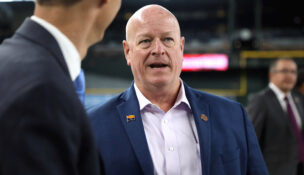Adams' open-door policy
Arizona Capitol Reports Staff//November 28, 2008//[read_meter]
Rep. Kirk Adams, a Republican from Mesa, will provide new leadership in the House, taking over as speaker in January after only one full term. He will replace Rep. Jim...
No tags for this post.

















